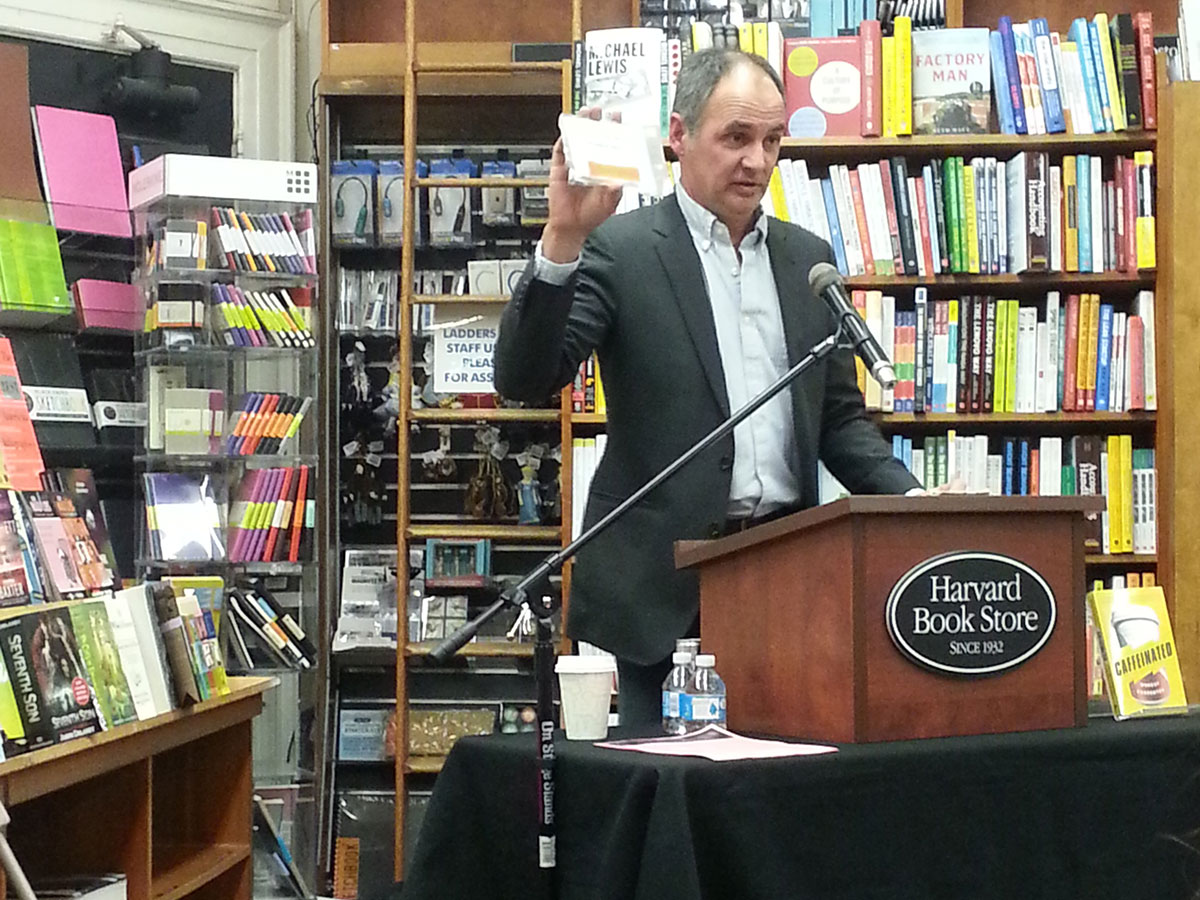Maine Author Explores Caffeine Habits in New Book

murray carpenter holds a packet of caffeine powder during his reading at harvard book store. photo by andrea timpano.
In 1911, the Bureau of Chemistry—the federal agency that would eventually become the FDA—went to war against a burgeoning company called Coca-Cola. Agency leaders took issue with the added caffeine in the company’s signature beverage, charging that it was addictive, unhealthy, and inappropriately marketed to children. As it turns out, there was some cause for concern: an eight-ounce bottle of Coke in 1911 contained 80 mg of caffeine, the same amount as a modern-day Red Bull.
This anecdote is just one of many shared by journalist and author Murray Carpenter in his new book, Caffeinated: How Our Daily Habit Helps, Hurts, and Hooks Us. Re-released in paperback on January 27, the Maine resident’s tome explores a slew of caffeine-related topics, including its use by athletes and soldiers as a performance enhancer, its role in obesity and other health challenges, and the debates over how it should be regulated.
Murray, who appeared at Harvard Book Store in Cambridge on February 4, says he wanted to write about caffeine because, despite its rampant consumption via coffee, energy drinks, chocolate, and other products, it’s not a drug that most people know very much about.
“I think it’s a really under-appreciated, underestimated role that caffeine plays not only in our daily lives but also in commerce,” Carpenter says. “It deserves more respect and understanding.”
One of the things Carpenter says that we don’t fully understand about caffeine is the degree to which we become addicted to it. As a coffee drinker himself, Carpenter says that he does believe caffeine is mildly addictive. Though not on par with hardcore narcotics, he does say that through his research, he found that it bears all the characteristics of addiction.
“You tend tend to develop a partial tolerance to it. Even at relatively small daily doses, most people will experience some withdrawal symptoms if they abruptly stop using it and definitely crave it,” Carpenter says. “In the broadest sense once you’re an habitual caffeine user, you feel good when you take it, and you feel lousy when you don’t. [It’s just that] most people made the calculation and said the benefits outweigh the costs on this.”
Another element that Carpenter says many people don’t fully appreciate is how much caffeine they actually consume on a daily basis. Most people are unaware of the caffeine levels of their beverages and other items, which Carpenter refers to in his book as “caffeine delivery mechanisms.” For example, having two grande-sized coffees from Starbucks each day doesn’t sound like a lot of caffeine, but he says it’s actually the equivalent of eight eight-ounce Red Bulls.
“On average, we generally don’t understand caffeine,” Carpenter says. “I’m not saying everyone should stop taking caffeine or take more. I just think we should understand it a lot better.”


